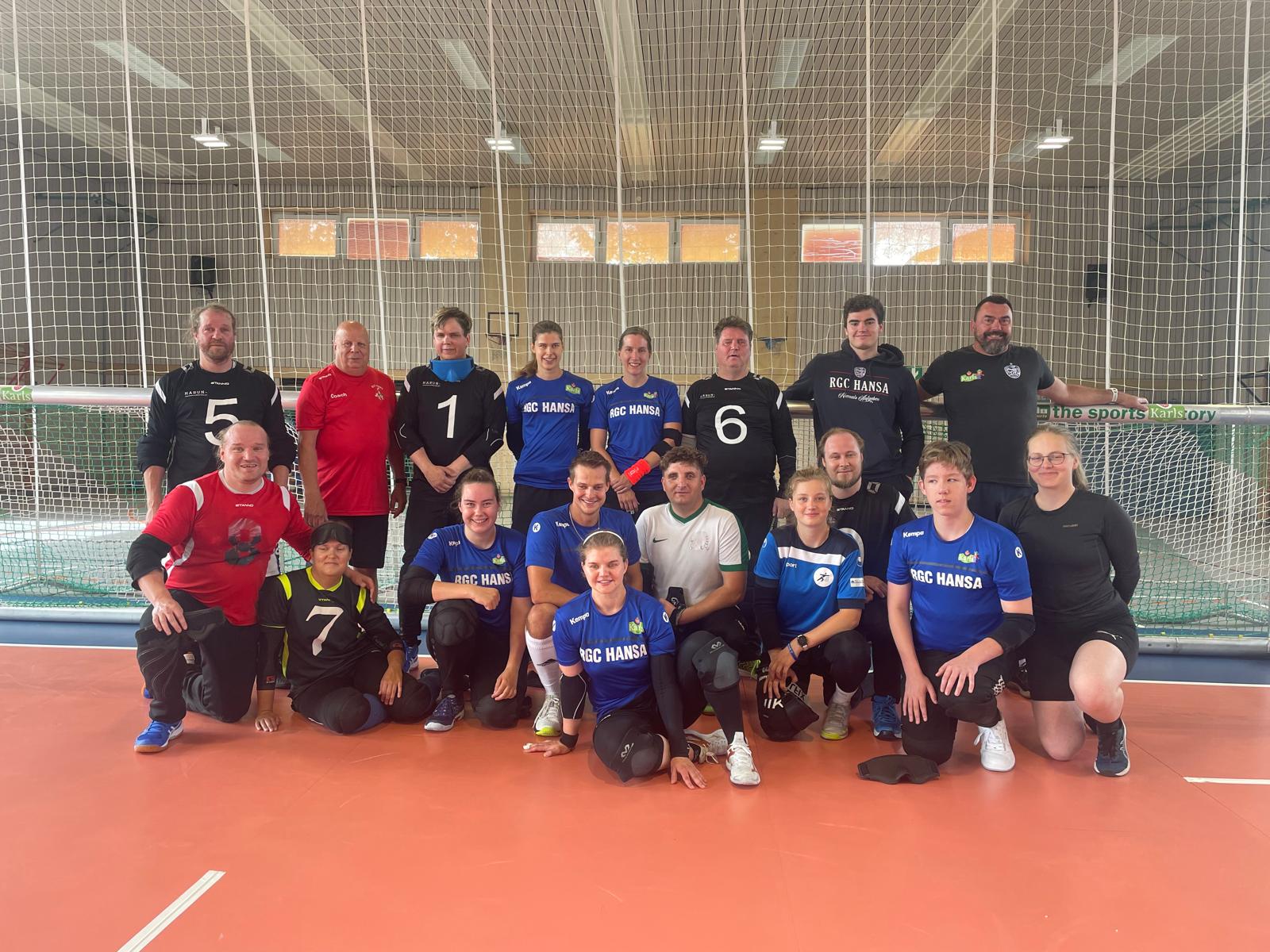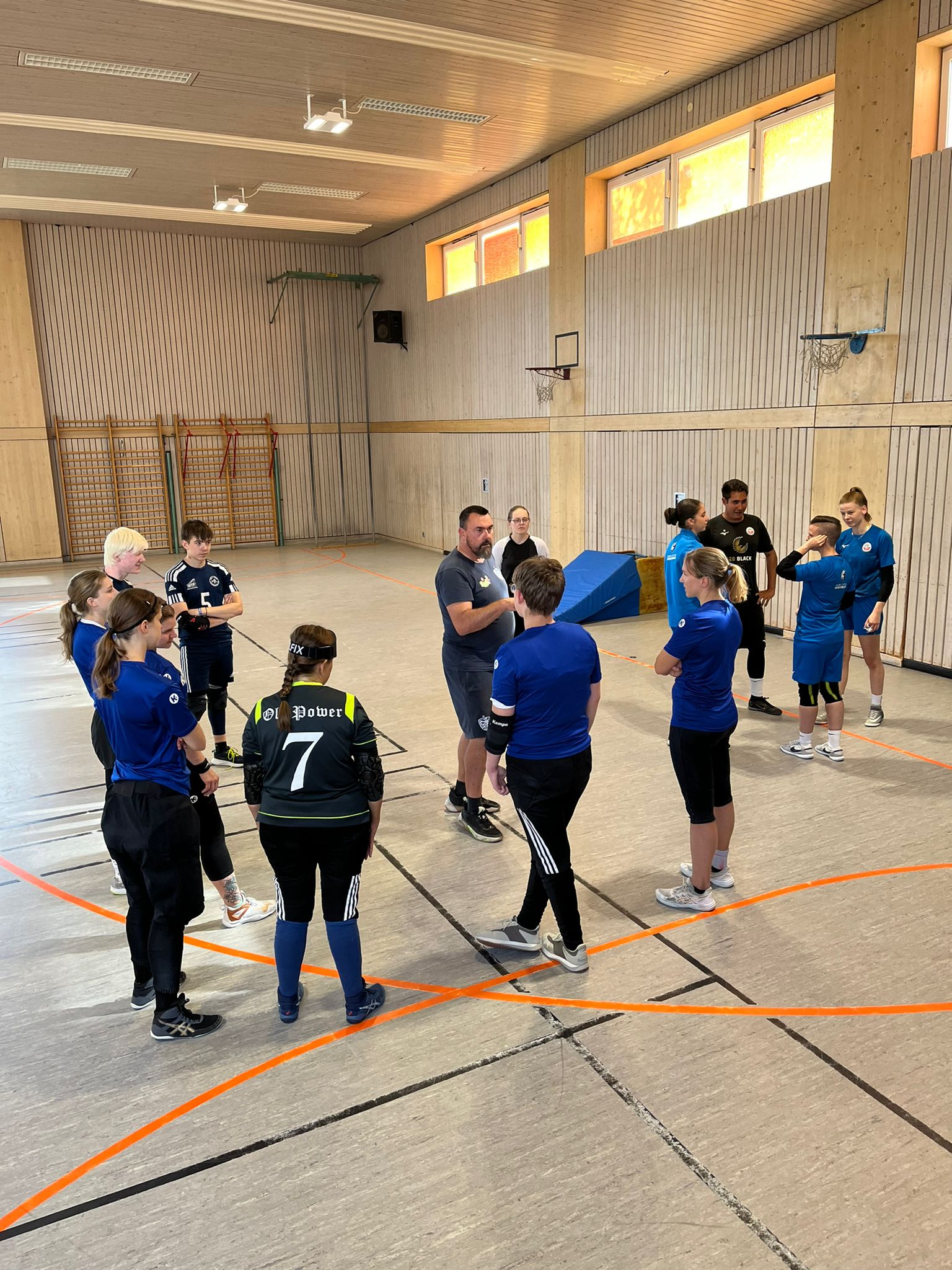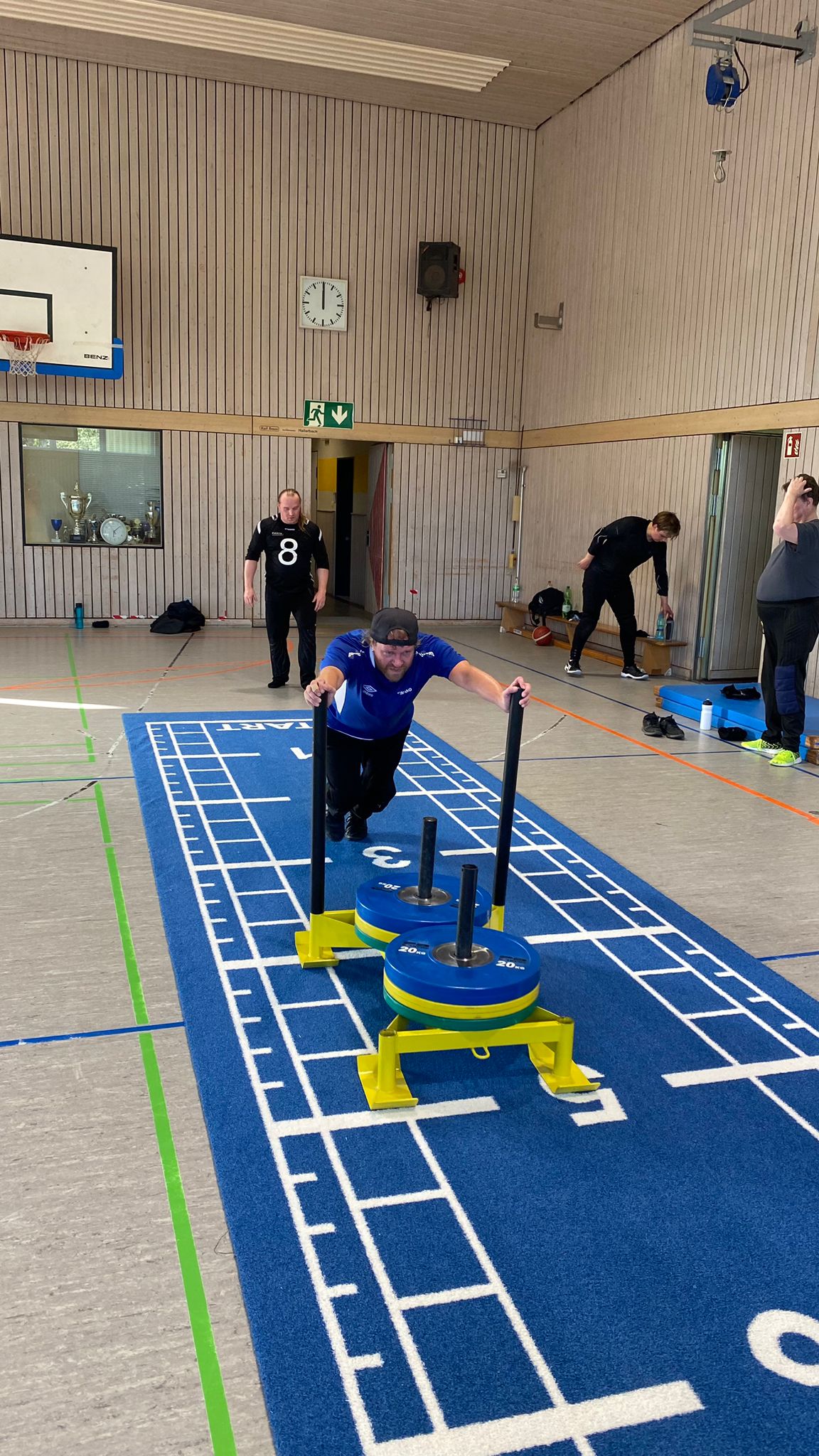Written by Susanna Halme
At Old Power, we have successfully carried out the first Erasmus+ Sport KA182 mobility project conducted by a European para-sports club, culminating in a trip to Germany in early August.

The aim of Erasmus+ Sport projects is to share best practices and methods, strengthen networks, develop skills, learn new approaches, and/or pilot new operational models together with European project partners. Participation in the Erasmus+ program enhances the capacity of grassroots organizations to operate internationally. This collaboration also creates opportunities to develop one’s own organization and view it from a new perspective.
Old Power is a goalball club based in Espoo, Finland. For us, the Erasmus+ project meant collaboration with the Rostock-based goalball club RGC Hansa. The project culminated in a trip where enthusiastic club influencers from Old Power traveled to Rostock for a week as guests of RGC Hansa to learn and get acquainted with our partner club’s operations.
During the week, we covered a variety of themes. We held a joint workshop on marketing and sponsorship, among other topics. We also heard the incredible growth story of RGC Hansa from its founding (2014) to the present day. Additionally, we were introduced to their coaching and training systems. RGC Hansa coordinates licensed goalball coach training in Germany, and understanding this was incredibly valuable as we are currently planning a goalball coaching program to be implemented in Finland as well.
Our players had the opportunity to test RGC Hansa’s training sessions and typical exercises in practice, as we held several joint training sessions and played a friendly match between the clubs during the week. In addition to the program’s content, the week included more relaxed networking and interesting discussions. We had shared meals, a tour of the city and town hall, a visit to the zoo, and a beach day with enjoyable activities. This way we also became familiar with German culture and the surroundings of Rostock.

Goalball: Sport for everyone
Goalball is a relatively small sport, which is why visibility and finding partners is not always easy. Moreover, new enthusiasts, coaches, and other contributors are constantly needed. RGC Hansa presented a significant change in how they talk about goalball when marketing it.
“Goalball was developed for the visually impaired. It has been traditionally spoken of as a sport for the visually impaired. However, solely relying on visually impaired athletes is not enough if we want to grow our club and the entire sport. We no longer refer to goalball as a sport for the disabled. Goalball is a sport. It is a fast-paced and fantastic team game. Goalball is well-suited for the visually impaired because it does not require vision, but it is not exclusively a sport for the visually impaired,” explains Reno Tiede, the founder of the German club.
When seeking new participants, they market goalball based on its characteristics as a sport. The fact that the game is played blindfolded is just a feature of the sport, and because of this feature, the sport is highly suitable for visually impaired people. RGC Hansa currently has as many sighted as visually impaired players.
This is something we could also consider in Finland. In our club and at the national championship level more generally, the majority of players are visually impaired, although we do have several sighted players as well. We could consider marketing the sport more broadly, keeping in mind that goalball at the club level is open to everyone — even to those without disabilities — up to the international club competition level.
Of course, this is not entirely without challenges: it is essential to always keep the sport’s accessibility in mind. If the majority of participants in training sessions are sighted, it becomes even more important to ensure that the sessions remain accessible for the visually impaired, with warm-ups and exercises being done safely and with clear guidance. We believe that goalball has great potential to become an even more inclusive sport, but the special needs of visually impaired athletes must not be forgotten.

New boost for partnerships
At Old Power, we have a strong desire to develop partnerships. In practice, this means that we hope to find new supporters who would like to be involved in supporting our club in some way. RGC Hansa presented their marketing and sponsorship collaborations. We gained new ideas and inspiration for our work in Finland.
RGC Hansa showcased a promotional video about the club, which they use when seeking partners and starting discussions with potential sponsors. The video’s purpose is primarily to generate interest in goalball and the club. The video highlights the best aspects of the club’s activities, such as training sessions and tournaments. It shows the great moments and emotions that the club and goalball can offer.
Inspired by this, we decided to start developing our own promotional video for Old Power immediately after the trip. The process is in its early stages, but a preliminary script has already been drafted, and we have found a videographer. The video’s funding is made possible through Erasmus+ project support. This is a concrete example of how such European club cooperation can provide tools for the development of one’s own club.
The club as part of the local community
During our joint August week, we also played a friendly match between RGC Hansa and Old Power. With this match, RGC Hansa raised funds for the local Rostock Zoo, specifically for a blind gorilla named Bebe. We visited together to donate the collected funds to Mrs. Bebe — and we also brought broken goalballs as toys.
With such projects, the club shows that they are not always just the receiving party asking for support; they are also an entity that can contribute to the local community. RGC Hansa is quite visible and well-known in their area, even though they don’t have a very great number of members. This is something we could also try in Finland. How could we be even more active in participating in local community activities? Could some collaboration enable various campaigns or events that could do good while also increasing visibility? These are good questions to consider in future club work.
We returned to Finland richer in experiences and knowledge. The greatest benefit of the trip to Rostock was undoubtedly seeing the operations of another club and getting ideas for developing our own Old Power. We hope that other para-sports clubs in Europe will be encouraged to participate in the Erasmus+ Sport KA182 mobility program, as it genuinely benefits club development work. We received excellent support from the Finnish Paralympic Committee and the National Agency for Erasmus+ during the application process and throughout the journey whenever we faced uncertainties; we definitely did not have to carry out this unforgettable project alone. We are also happy to assist and share our experiences if other European clubs plan and implement their own projects in the future.